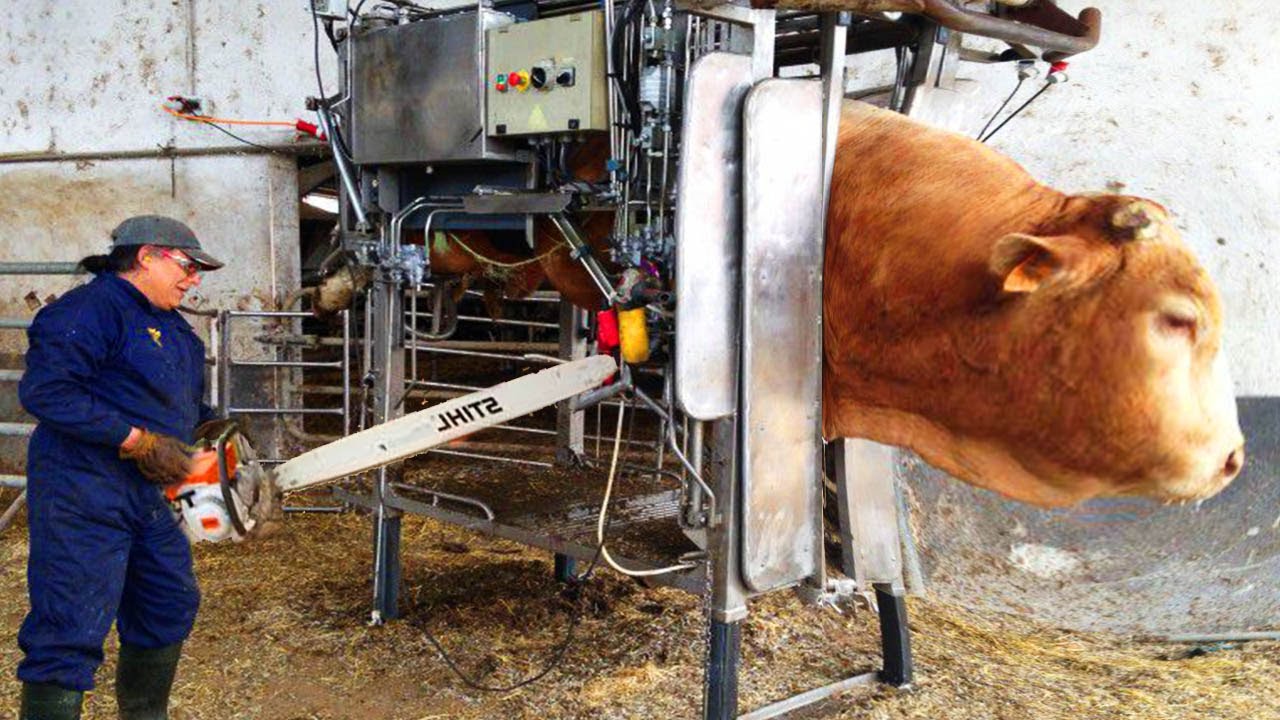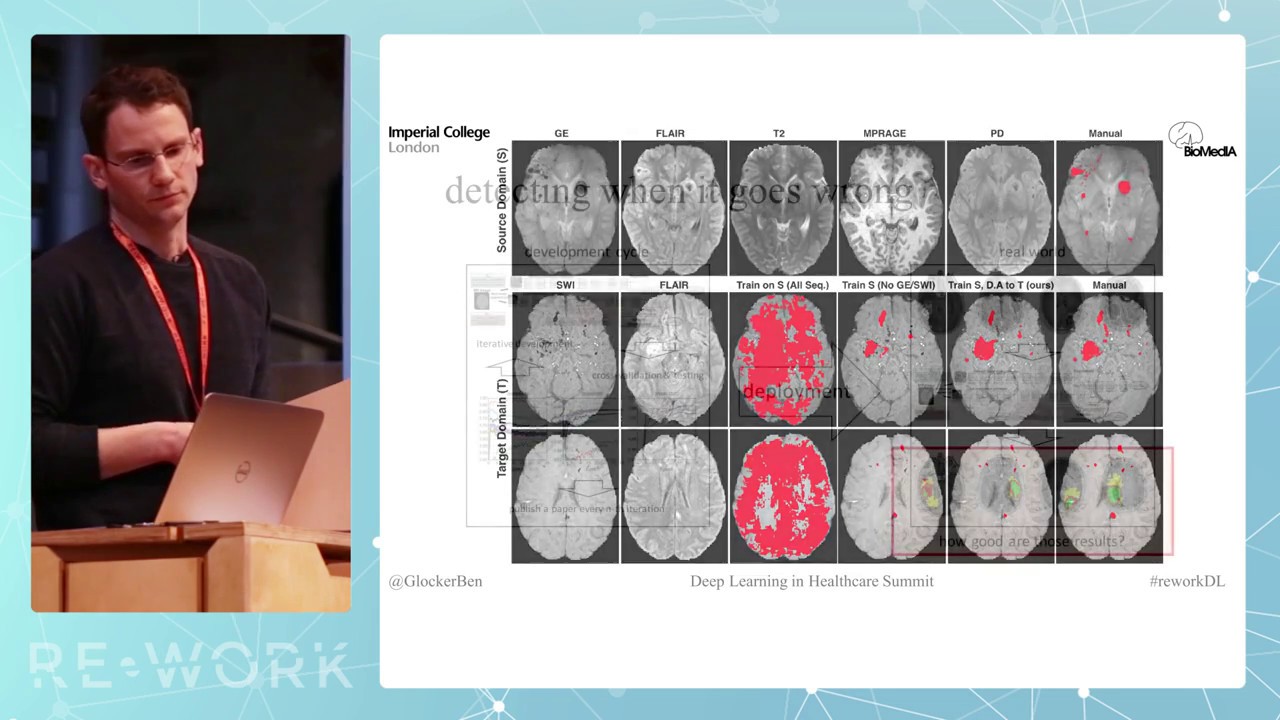The Royal Institution
Are ancient psychotropic substances a possible route for treating addiction? Does stress play a role in recurring cravings? What role do dopamine-blocking drugs have? Marc Lewis answers questions from the audience after his talk.
Watch the full talk here: https://www.youtube.com/watch?v=aOSD9rTVuWc
In recent decades doctors have branded addiction a brain disease, and treated it as such. But in this riveting and provocative talk, neuroscientist and former addict Marc Lewis makes the convincing case that addiction isn’t a disease at all. Using personal stories and robust science, he explains how addiction really impacts our brains, and how neuroplasticity and a developmental approach to treatment can help to overcome it.
Marc Lewis is a neuroscientist and professor of developmental psychology, recently at the University of Toronto, where he taught and conducted research from 1989 to 2010, and presently at Radboud University in the Netherlands. He is the author or co-author of over 50 journal publications in psychology and neuroscience, editor of an academic book on developmental psychology, and co-author of a book for parents. More recently he has written two books concerning addiction.
Subscribe for regular science videos: http://bit.ly/RiSubscRibe
The Ri is on Twitter: http://twitter.com/ri_science
and Facebook: http://www.facebook.com/royalinstitution
and Tumblr: http://ri-science.tumblr.com/
Our editorial policy: http://www.rigb.org/home/editorial-policy
Subscribe for the latest science videos: http://bit.ly/RiNewsletter
Source




I would've answered all the questions about the same way & I'm a nobody LMAO Wish it would've gone on longer.. And reached deeper levels in general.
At least he knows and admits AA's 12 step program approach is an utter failure, especially for atheists specifically in particular.
He dodged that last question. The last question was about the definition of addiction and yet his entire talk was based on redefining the definition. I think he has personal experiences of the disease model failing for him and he has devoted his work to counter it, not actually defining it. This is a personal crusade not science.
I am addicted to science and allergic to allergies …now what? שלום
When you sneeze No one can say "bless you"…נודנק
brillliant
Fascinating talk and Q&A! Thanks for posting! I'm looking forward to reading the book 🙂
What about a lower being watching under him….lol
very interesting
Thanks a lot for the brilliant seminar.
I tried the 12 step long time ago and from the very beginning it didn't make sense to me. The desease model, powerlessness and so on.
Ever since I dropped off the 12 steps I see and talk to others who drops off from time to time to hear what they say. Ironically they all say the same thing.
Addiction is a myth, there's only things people prefer to do more than other things that other people say is healthy for everyone indefinitely. Depression is a side effect of economic oppression, which can lead to anxiety. I think that lady should have used "rat park" as a reference instead of a monkey study, though results are always contingent with the bias' associated with those observing and regurgitating misinformation.
Legalizing substances, abolishing tax havens, and implementing a negative income tax might be the remedy physicians, lobbyists, and politicians should be recommending instead of the same bolsheviks on individuals time and time again.
scientifically speaking good lecture, nice slides and explanation of the brain activity
however Lewis is in denial , he gives advice which is for the most part good
sort of puts down current methods (12 steps etc..) but yet his advice is exactly the same as that of the 12 step programs (minus the god part) and current rehabs in the US especially state funded , .. so basically he shuts down
current methods including the disease model but promotes most of them
on top of that modern medicine showed up to 80% of addiction is genetics i mean it's somewhat a fact not some wacky theory it's studied and verified by geneticists allover the globe.. if you want to question mainstream consensus you need to have better arguments than just personal opinions or cherry picked information
Overall this is a very good and informative video but I disagree with his tangled rejection of addiction as disease. To reject the disease model throws a very physiological state–dis-ease–back to "talk therapy" and very sick people "thinking" themselves well. This is the ultimate cruelty! It is not done for diabetes, for example. Addiction will not be solved until there are physiological cures for physical states of aberration. The brain and nervous system are biochemical similar to the rest of the body and occasionally things go wrong with the system.
Addiction is a belief… The idea of this is extremely powerful.
The ideas and methods that are explained in the talks are not new, but the technology of looking at the brain using fMRI has taught us that these older therapies work (meditation, taiji and many Asian therapeutic intervention lifestyles) for most people willing to have an open mind (no pun intended). Conflict of interest in the brain to eliminate ego; a subconscious prison that- the poor old conscious thought will always lose in some way over-time. It's nice that the scientific community are finally waking up to what is known as alternative therapies that actually work by thickening the PFC grey matter, neurons and reconnecting neurons via (brain) plasticity to develop that skill of letting go of the addiction (and the ego); whilst not taking de-motivating medical intervention drugs or becoming addicted to religion! Great talk(s)…
In my opinion, addiction of substances is achieved by the majority of people for the same and very common reason. That is to feel better about a bad aspect of our life. For me, it was losing my Father at 5yrs old. Murdered and dismembered. With alot of local media attention. Very gruesome and Tragic… which ultimately impacted my life by immediately growing up very fast. I had to be more of a Father to Joshua, my kid Brother 2urs younger than me, instead of just on older sibling. And also, be there for my Mom, for emotional support and the older I got, financially had to contribute. The pain of my Fathers loss had an immediate impact of anxiety, socially conscious, and fear of failure and the consequences that came with it. The first addictive thing I ever tried was a cigarette. 1 was 10yrs old. By the time 7grade rolled around I stepped up to Booze. Then my Junior year Pain Pills, After tearing ACL playing football and having reconstructive surgery.
After that, it was the same sad story we know all to well. 23yrs I was arrested for my 1st Felony and sentenced to 6yrs for Robbery, Kidnapping, and a Firearm. I was on 10 Oxy 80's a day, by the time of my arrest. I was giving nothing for the 2 weeks of Hell in a Jail cell. From there due to the fact I had very little money sent to me I chose to spend my little money on the necessity rather than impulse. And over time I kept up that way and started to feel better over time. I will honestly tell you that with only surrounding myself with people that had no interest in Pills, exercise daily, and got involved with team sports again…. It wasn't until I had completed my 4th yr I genuinely could say with 100% confidence that no matter if a pile of pills for free were to be placed in front of me. That I would absolutely not do it. And with that experience. It's why I believe most of us take the same road to get to our addiction. But to leave from addiction we all have our own road leave addiction behind. Addiction is a condition acquired through hardships and traumas inflicted by our impulses as a society. I was able to move past addiction with no professional medical help at all… it can be done. The Human Mind is it's own worst enemy. But the Mind is it's greatest allie just the same. Thank you Marc Lewis for having the resolve to seek out a better more effective solution overall.
What was the funny comment at 23:23? Can't hear it.
Every single thing a person does has a consequence waiting, addiction is due to a free will choice period,i know ,ive been clean off Alcohol for 23 years, as for the dope,total garbage.